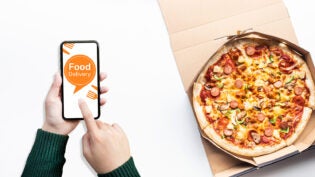
Is a customer loyalty program really a loyalty program? Does the typical customer enrolled in the program feel some sort of connection beyond the rewards, points or discounts they receive? We want the customer to have that connection. We want the customer to feel a sense of ownership in the relationship they have with us. That’s what we want our loyalty program to do!
When we refer to our customers as owning our brand, we’re actually referring to them as owning our brand promise. Taking that to the next level is when we can get customers to feel ownership in our business.
This is not ownership in the typical sense, where a customer has a stake in the company. This is emotional ownership, a bond that makes them feel part of the business. They feel like more than just a customer, an account or a number. This is my concept of customer partnership, which is loyalty on steroids.
Note to our B-2-B friends. The examples that follow focus on retail business and retail customer loyalty programs. Don’t think this concept doesn’t cross over to business-to-business. It is every bit as applicable—and important.
Loyalty programs, in many cases, are just marketing programs. They are created as an incentive to get a customer to come back, versus a true reward for loyalty. The only connection the business has to the customer is a card that earns them a discount or points for purchases. Studies are showing that consumers are members of sometimes dozens of different loyalty programs, many of which they sign up for, yet never actually participate in. So, how can you call that customer a member of your loyalty program? They aren’t necessarily loyal, they are just members of your discount program.
True customer loyalty doesn’t come from a program. It comes from an emotional tie between the customer and the business. Customer loyalty becomes reality when the customer refers to the place he or she does business as:
“My grocery store…”
“My department store…”
“My Starbucks…”
You get the idea. And the “ownership” the customer has to their favorite stores usually comes from how the employees make them feel. The customer is recognized, often by name. There are at least one or two employees that have built some rapport and bonded with the customer. The concept is that people don’t do business with a business. They are doing business with the people in the business.
The ultimate goal is to have, at minimum, the right product, acceptable quality, fair pricing, a positive customer service experience AND a staff that is able to build rapport with a customer. That may sound like a lot, but isn’t that what just about every customer wants? It’s common sense. This is the winning combination where a business meets their customer’s needs and at the same time creates some type of human connection that endears the customer to their business. It’s that human connection that will take the extra effort, but it’s worth it.
That’s what loyalty is all about. After that, the loyalty program is just icing on the cake.
Published: January 21, 2014
2258 Views
2258 Views












